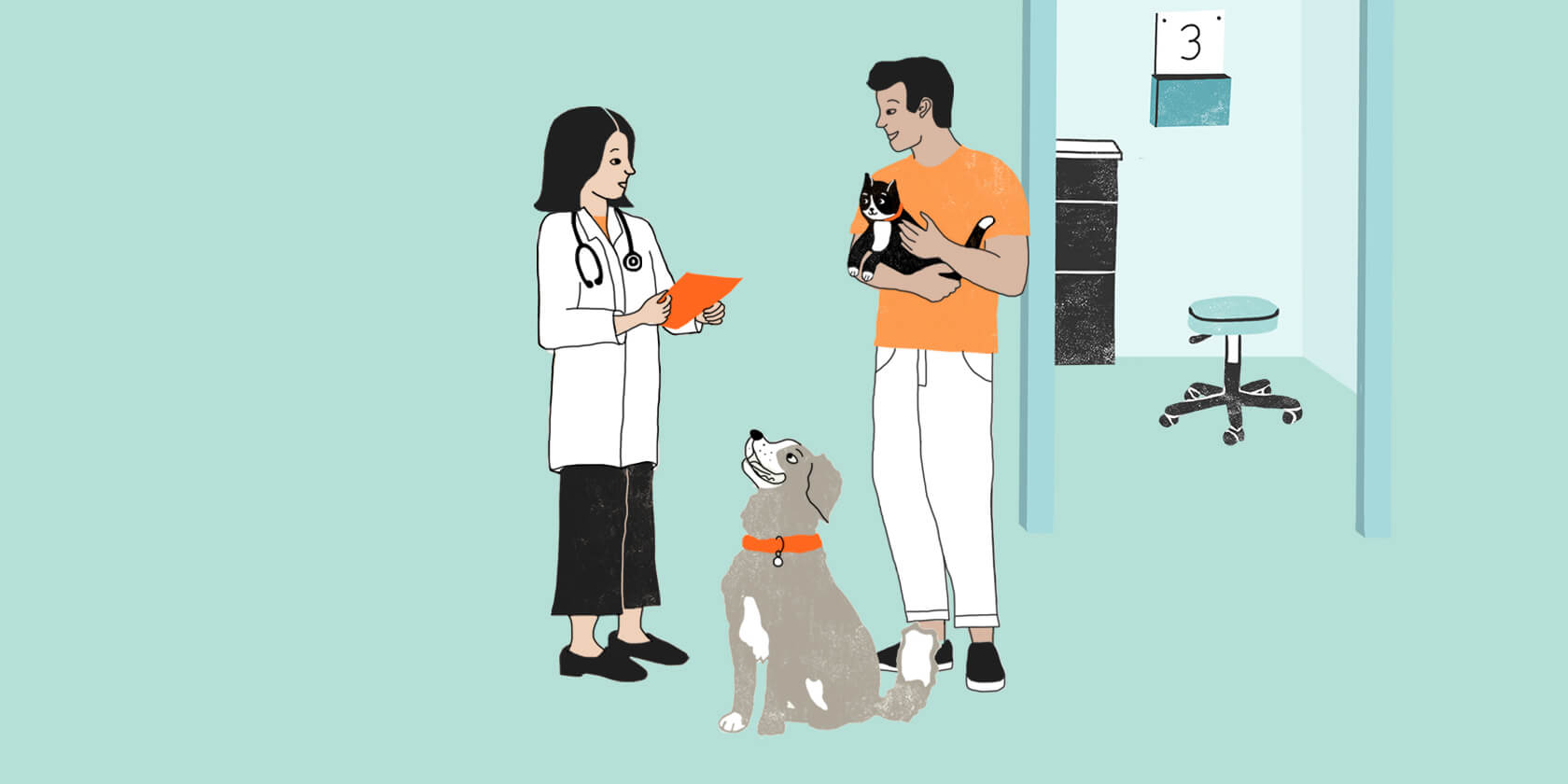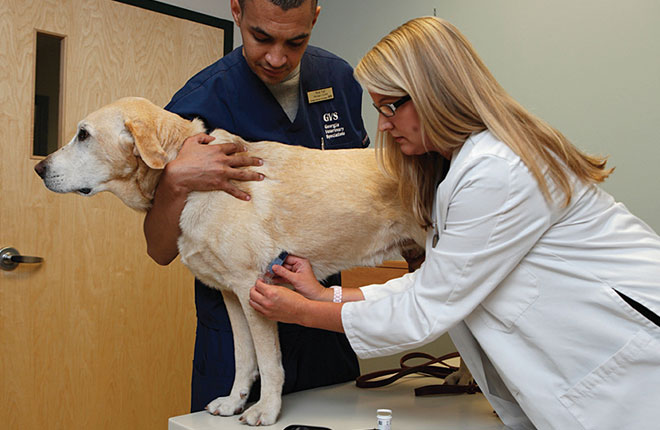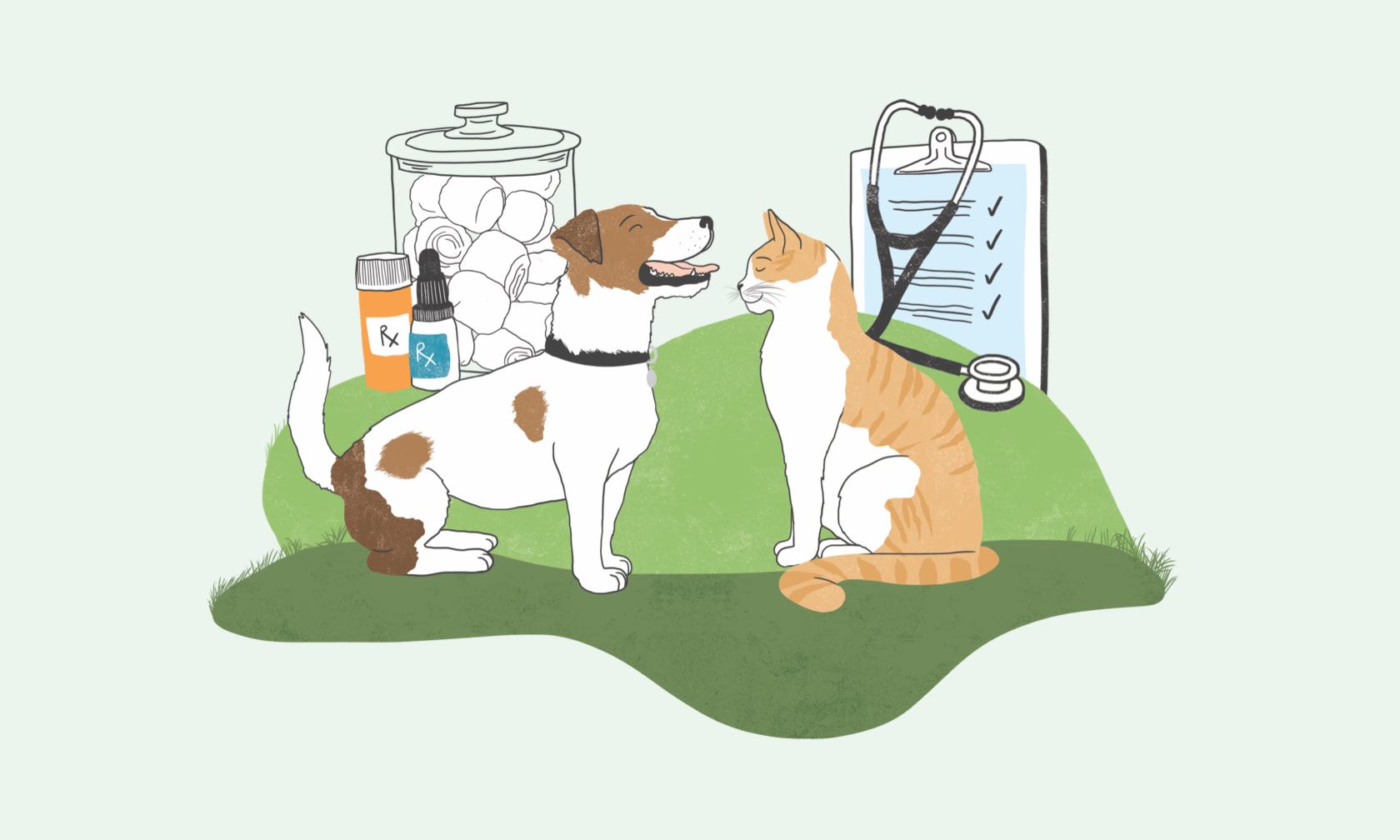When you take your pet to the veterinarian, whether it’s for a wellness check-up, or to diagnose or treat an issue, your veterinarian may suggest certain tests or procedures to ensure your pet is in optimal health. This type of testing is referred to as diagnostic health screening.
Diagnostic health screenings helps to establish a baseline for your pet, which can be compared to future tests for changes. It also helps you catch issues earlier, before they become full-blown problems or even emergencies, helping your pet live a longer, healthier, more trouble-free life. When these tests are done at the site of patient care, you’re able to get those results quickly, often before you even leave your veterinarian’s office!

What Is Point-of-Care Testing?
Point-of-care testing is preventative or diagnostic testing that is run and analyzed where your pet receives care, such as at your pet's veterinary clinic. This type of testing may provide results more quickly than send-out lab results, so you can get an answer or a diagnosis and decide next steps (additional testing, treatment, or advanced diagnostics) in the same visit to your veterinarian.
Research shows that underlying issues can be detected earlier by monitoring your pet’s health through regular diagnostic testing. In an analysis of 1,197 feline wellness visits[1], a quarter of the cats had diagnostic testing abnormalities that could be consistent with a range of serious conditions, warranting further evaluation.
Diagnostic health screenings are sometimes the only way to identify health issues before they become something more serious.
Common Point-of-Care Tests for Pets
The tests your veterinarian may recommend for your pet depend on their breed, age, and lifestyle. Some of the most common preventive, diagnostic, or monitoring tests that can be run and analyzed in-clinic through point-of-care testing include:
Blood Chemistry
These tests can provide indicators of the health and function of your pet's pancreas, liver, kidneys, intestines, thyroid and other organs.
A common test is a biochemistry profile, which will check many different factors including blood glucose (checking for evidence of diabetes, liver dysfunction and other diseases), blood urea nitrogen (BUN) and creatinine (both indicators primarily of kidney/renal health), blood protein levels (where abnormalities could indicate inflammation, liver dysfunction, or even certain cancers), and specific liver enzymes (indicating a range of different problems with the liver).
Hematology Testing
The most common hematology test is the Complete Blood Cell Count (CBC), which looks at red blood cells, white blood cells, and platelets. It can help the veterinary team detect conditions like anemia and leukemia, and can detect inflammation, blood clotting concerns, and possible infections.
Urinalysis (Urine Testing)
Urine tests, which should be performed alongside blood chemistry testing, look for the presence of blood, protein, glucose, bacteria or other abnormalities in the urine. This tells the vet team not just how well your pet's kidneys are working, but also provides insight into other areas such as the potential for a urinary tract infection, inflammation or even stones.
Fecal Testing
Fecal testing looks for evidence of common intestinal parasites that can make your pet sick. Some of these parasites, such as Hookworms and Roundworms, can also affect humans.
Benefits of Diagnostic Health Screening
- With point-of-care testing, your pet's test results are available to you the same day[2].
- You get peace of mind when normal results are confirmed.
- By trending test results over time, your veterinary team can document what is normal for your pet and more easily recognize early signs of disease.
- Detecting disease early often managing it faster, thereby lessening the discomfort for your pet. When disease is detected early, it decreases the cost to get the condition under control and maintain it over time.
- Ultimately, diagnostic health screening allows your veterinary team to treat your pet proactively rather than reacting once problems have already gotten out of hand.
ZPC-00422R1
- Zoetis Technical Bulletin June 2014, Lavan, Robert et al. Pet Wellness Report: Feline Health Risk Assessment.
- A Pet Owner’s Guide to Preventive Testing. Abaxis.



